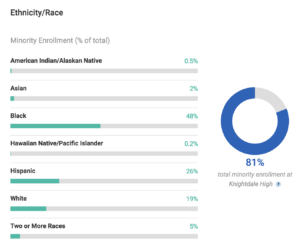Has your knowledge of career opportunities changed as a result of your internship experience? Please explain.
My knowledge of career opportunities for my students has not changed much as a result of my internship experience, but my network for career opportunities for my students has certainly been expanded from this experience. I knew that students could work as statisticians, and I learned that, in order to work in a place like SAMSI, my students need to be working in a post-doctoral capacity, which honestly really takes a lot of opportunity away from the students that I work with.
I very much appreciated the internship experience because it immersed me into a world where people spent all day wrestling with problems and working towards solutions to those problems using statistics and technology tools. I learned that there are places that will pay my students to spend long periods of time simply trying to figure out one problem. I learned this even more from a site visit that I made to RtI with my school, where some chemists told us that they have spent months on solving one problem, or trying to create one compound.
My frustration with many of these opportunities is that they require my students to get an education beyond not just high school, but also undergraduate degrees, and in SAMSI’s case, master’s and doctoral degrees. This means that my low to low middle class working families would have to either pay for more than four years of college education, or take out student loans that will bog them down for the rest of their lives, just to even reach a place where these locations might look at them. I want my students to be excited to work in these great STEM fields, and to strive toward excellence and love of learning, but for some, it simply seems unattainable.
I am very interested in learning more about career opportunities for students that get an associate’s degree from community college, because that is much more attainable and affordable for my students. Last year, for instance, most of our students who went to college went to Wake Tech, because that was where their parents could afford to send them or the only school they could get into. Some of them are getting two years of Gen Ed’s completed before going to a four year university, and many are working towards a trade degree that will allow them to start making money after two years. Simultaneously, most of those students are working to be able to help pay for their education.
Also, during my internship experience, I noticed something very interesting about the demographics of the people that I was working with: all of the people I met were either Asian or white, and most of the Asians that I met were working here under a visa from another country. In order to be sure, I just went to look up the staff photos for SAMSI, and I can confirm that all but possibly one person, whose race is unclear from her picture and name, fall under those demographics. I would be willing to bet that many of those people also come from families that had higher degrees, highly valued education, and had the resources to support their students through all of the education they needed to get to where they are.
This leads me to question if it is simply because Asian and white people tend to prefer statistics, which seems kinda silly to me, or if Asian and white people tend to be placed in higher level classes so they are exposed to statistics earlier, which is very possible, or if Asian and white people just have better resources to be able to access highly analytical jobs such as statisticians. In contrast, I work at a school with these demographics:

On top of this, we have 52% of our student body qualifying as “economically disadvantaged,” and our school is graded as a D in academic performance. (These numbers are based on the 2015-2016 school year and come from the link: https://www.usnews.com/education/best-high-schools/north-carolina/districts/wake-county-schools/knightdale-high-14760/student-body)
I have to wonder, is it even a real possibility for my students to dream about working at a place like SAMSI? Maybe it is for my AP Stats students, who are only 22 students total from a senior class of about 400, and is made up of the smartest students in our school who have successfully completed at least four, but most likely five, and for some, seven high school math courses. But what about for the rest of my students? I teach 110 students per semester, which is 220 per year…I’d like to learn more about what the average student can achieve, and how to get them there. I know there are many trades that are currently hurting for workers, and I’d like to learn more about those. I know that there are positions that take certificates and two year associates degrees and there are some places that will hire right out of high school.
Simultaneously, I would like to talk about policy changes that could increase the social justice for my demographic of students, and put more in a position to actually be able to access some of these career opportunities. I want to be able to expose my students to statistical jobs, which are so powerful and useful in today’s world, and know how to support them in obtaining one of those jobs, without putting them forever in debt to their student loans. I just feel like the more I learn, the more I notice the social justice issue that has become our school system, and I would like to have some focused conversation around that.
